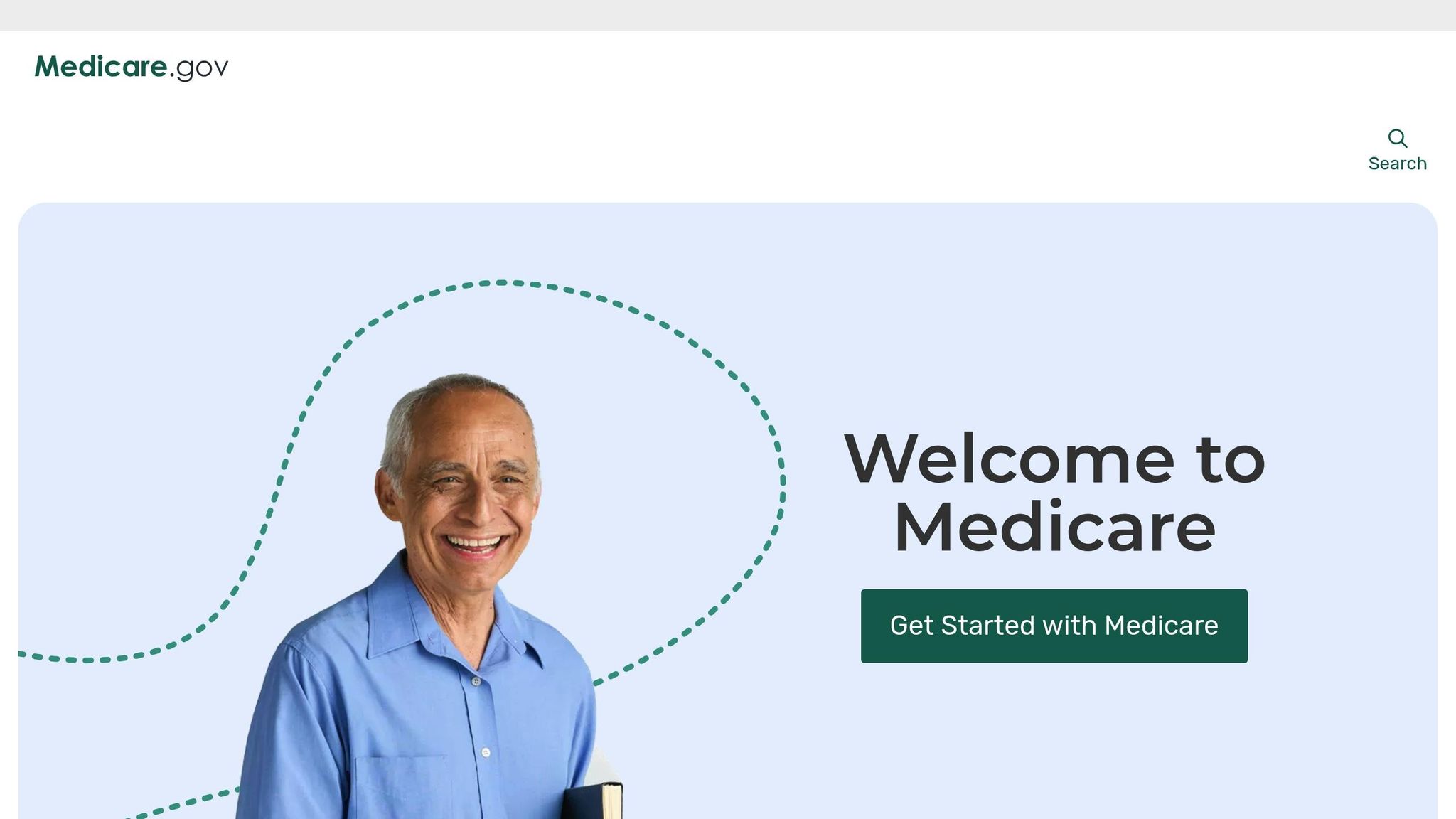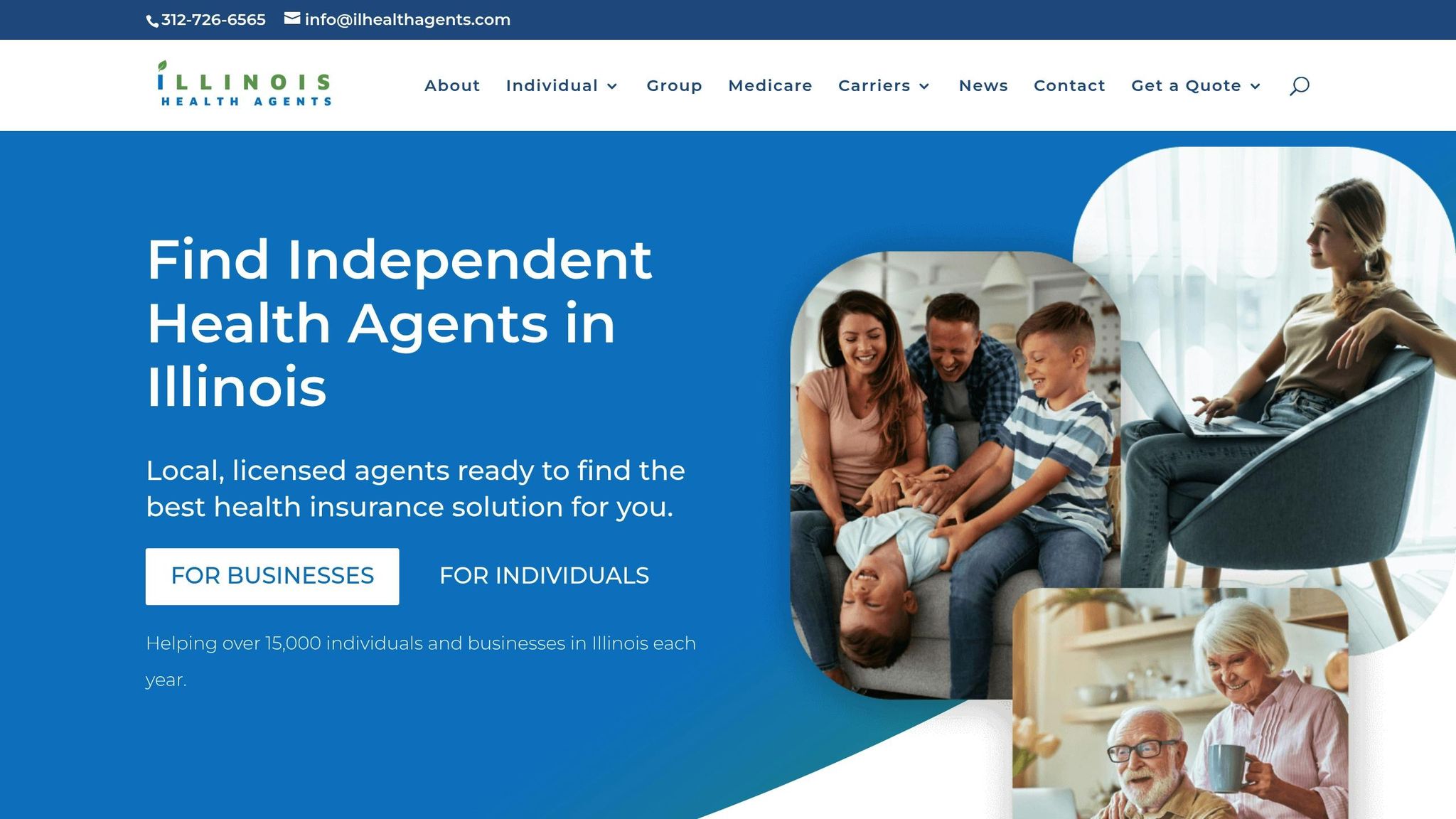Health insurance gaps can lead to expensive medical bills and limited access to care. Here’s how to avoid them:
- Plan for Life Changes: Coverage gaps often happen during job changes, turning 26 (aging out of parental plans), or relocating. Always check when your current coverage ends and act quickly to secure a new plan.
- Use Special Enrollment Periods (SEPs): Qualifying life events like marriage, childbirth, or losing a job allow you to enroll in a new plan outside open enrollment. Keep documentation ready to prove eligibility.
- Consider COBRA or Short-Term Plans: COBRA can extend your employer-based insurance temporarily but is costly. Short-term plans are cheaper but may not cover pre-existing conditions or essential benefits.
- Prepare for Medicare Transitions: Enroll in Medicare on time to avoid penalties and coverage gaps when you turn 65.
- Review Plans Annually: Check your coverage every year during open enrollment to ensure it still meets your needs.
Key Tip: Act early and explore all options – COBRA, marketplace plans, or short-term insurance – to stay covered during transitions. Missing deadlines can leave you uninsured for months.
For more details on avoiding gaps and choosing the right coverage, keep reading.
Gap Health Insurance – What You Need To Know
Common Causes of Coverage Gaps
Knowing when coverage gaps are likely to happen can help you prepare and avoid being left uninsured. These gaps often occur during major life changes, referred to as qualifying life events. Under the Affordable Care Act, you generally have a 60-day window before or after such an event to adjust your health insurance. Missing this window could mean waiting until the next open enrollment period. Below are some of the most frequent situations where coverage gaps arise.
Job Transitions or Loss
Losing or changing jobs is one of the leading causes of coverage gaps. Employer-sponsored health insurance typically ends either immediately or at the end of the month when you leave a job, whether voluntarily or due to layoffs.
While COBRA offers a way to continue your coverage, it can cost up to four times what you paid under your employer’s plan. This steep increase often forces people to drop coverage entirely.
If you lose your job-based insurance, you have 60 days to enroll in a new plan. If you’re starting a new job, check when your health benefits kick in – many employers have waiting periods of 30 to 90 days. Make sure your previous employer provides clear details about when your coverage ends and your options moving forward. Keep this documentation as proof to qualify for a special enrollment period.
Aging Out of Parental Plans
Turning 26 is a major milestone that can leave many young adults without coverage. Under the Affordable Care Act, you can stay on your parents’ health insurance until you turn 26. However, the timing of when coverage ends depends on the type of plan.
If you’re covered under a parent’s employer-sponsored plan, coverage typically ends at the end of the month in which you turn 26. For those on a parent’s Marketplace plan, coverage lasts until December 31 of the year you turn 26, regardless of your birthday.
This difference in timing can lead to confusion and unexpected gaps. If you miss the special enrollment period, you might have to wait for the next open enrollment, leaving you uninsured for months.
Plan Changes or Terminations
Occasionally, insurance companies cancel plans, adjust provider networks, or stop offering coverage in certain areas. These changes can force you to act quickly to secure a new plan, especially if your current doctors are no longer in-network.
Relocating to another state can also disrupt your coverage, as your existing plan may not be valid in your new location. In such cases, you’ll need to explore options through that state’s marketplace.
Most plan terminations align with the end of the calendar year during open enrollment, but mid-year changes are possible if insurers exit markets or make significant changes to their offerings.
To avoid gaps, keep documentation of qualifying life events – such as birth certificates or marriage licenses – as proof for special enrollment eligibility. If you notice any changes to your plan, reach out to your insurer or marketplace as soon as possible. Acting early gives you more choices and reduces the stress of scrambling for coverage at the last minute.
Options to Maintain Continuous Coverage
If you’re facing a gap in health insurance coverage, here are some options to consider.
COBRA Continuation Coverage
COBRA allows you to keep your employer-sponsored health insurance after losing your job, but it comes at a cost. You’ll be responsible for the full premium, plus administrative fees, which typically range from $400 to $700 per month per person.
Your employer is required to send you a COBRA notice within 45 days of a qualifying event. Once you receive the notice, you have 60 days to decide whether to enroll. If you do, your coverage will be retroactive to the day your original plan ended, meaning any medical expenses incurred during the gap can be reimbursed.
The duration of COBRA coverage depends on the reason you lost your employer-based insurance:
| Qualifying COBRA Event | Length of Continuation Coverage |
|---|---|
| Reduction of Hours (loss of coverage) | 18 Months |
| Voluntary Termination of Employment (quitting) | 18 Months |
| Involuntary Termination of Employment (fired) | 18 Months |
| Divorce, Annulment, or Legal Separation | 36 Months |
| Child Turns 26 or Ceases to Be a Dependent | 36 Months |
| Death of Employee | 36 Months |
| Disability Determination (within first 60 days of COBRA) | 29 Months |
If you don’t receive your COBRA paperwork on time, contact your former employer’s HR department immediately. If they fail to issue the notice within the required timeframe, you can report the issue to the Department of Labor.
If COBRA doesn’t meet your needs, there are other options, such as Special Enrollment Periods.
Special Enrollment Periods (SEPs)
Special Enrollment Periods (SEPs) allow you to enroll in a Marketplace plan outside the standard open enrollment period.
Certain life events can trigger an SEP, such as marriage, childbirth, adoption, divorce, a death in the family, or moving to a new residence. Losing health coverage – whether it’s through an employer, Medicaid, CHIP, or a family member’s plan – also qualifies. However, letting your COBRA coverage lapse due to non-payment does not qualify as a valid reason for an SEP.
To apply for an SEP, you’ll need to provide documentation of your qualifying life event. This could include marriage certificates, birth certificates, or termination letters. Be prepared to submit these documents if the Marketplace requests verification before approving your enrollment.
If your employer offers financial assistance for a Marketplace plan, contact the Marketplace Call Center to confirm your SEP eligibility. This situation may require special handling to ensure you don’t miss your enrollment window.
For short-term coverage needs, another option is short-term health insurance.
Short-Term Health Insurance Plans
Short-term health insurance can act as a temporary solution during transitions, such as between jobs or while waiting for other coverage to begin. These plans can start as quickly as the day after you apply, making them useful if you need immediate coverage.
However, there are important limitations. In Illinois, for example, short-term health plans will be banned starting January 2025. If you live in Illinois, you’ll need to explore COBRA or SEP options instead.
For residents in other states, federal rules cap short-term plans at 3 months, with a possible 1-month extension – totaling 4 months of coverage within a 12-month period. While premiums can start at under $100 per month, these plans come with trade-offs.
Short-term plans are not ACA-compliant, meaning they don’t cover essential health benefits. They also exclude pre-existing conditions and often have higher out-of-pocket costs compared to ACA plans. These policies typically offer limited benefits, so it’s crucial to carefully review the fine print to understand what’s covered and what’s not.
These plans are sold through private insurers and aren’t available on the Health Insurance Marketplace. Because of their restrictions, short-term plans are best suited for healthy individuals who need basic coverage for a brief period. For most people, COBRA or a Marketplace plan through an SEP provides more comprehensive protection during coverage gaps.
sbb-itb-a729c26
Strategies to Avoid Future Coverage Gaps
Avoiding gaps in your health coverage requires thoughtful planning and consistent action throughout the year. By staying proactive, you can better handle life changes and ensure smooth transitions between plans.
Annual Health Plan Reviews
Make it a habit to review your health insurance plan every year – not just during open enrollment. Your healthcare needs, financial situation, and available plan options can shift significantly over time. To avoid surprises, confirm your employer’s coverage end date in writing.
As part of your yearly review, prepare a list of your medications and treatments to confirm that your plan still meets your needs. Check for any changes in network providers and compare premiums, deductibles, and copays to ensure your plan remains the best fit for you.
Using Health Savings Accounts (HSAs)
Health Savings Accounts (HSAs) can be a lifesaver when paired with high-deductible health plans, especially during coverage gaps. Unlike employer-dependent accounts, HSAs are portable, meaning the funds belong to you no matter where you work or which insurance plan you have.
For 2025, the contribution limits are $4,300 for individuals and $8,550 for families, with an additional $1,000 catch-up contribution if you’re 55 or older. These funds roll over each year, unlike Flexible Spending Accounts, which often have "use it or lose it" rules.
HSAs also come with a triple-tax advantage: contributions are tax-deductible, the funds grow tax-free, and withdrawals for qualified medical expenses are not taxed. This makes HSAs a versatile tool for both immediate healthcare costs and long-term financial planning. You can even invest unused HSA funds in stocks, mutual funds, or ETFs, allowing for potential growth over time.
Looking ahead, the average 65-year-old couple retiring today will need around $315,000 to cover healthcare expenses during retirement. By maximizing your HSA contributions early, you can build a financial cushion to bridge coverage gaps and prepare for future healthcare costs.
Understanding Medicare Transitions

Medicare eligibility kicks in at age 65, but timing your enrollment is crucial to avoid coverage gaps. You can enroll as early as three months before your 65th birthday to ensure your coverage starts on time. If you’re already receiving Social Security or Railroad Retirement Board benefits, you’ll be automatically enrolled in Original Medicare Parts A and B.
If you’re still working past 65 and have employer-sponsored health insurance, you may be able to delay Medicare Part B enrollment. However, it’s essential to confirm with your benefits administrator that your employer coverage is "creditable" before postponing Part B.
For those retiring after 65 with employer-sponsored coverage, there’s an 8-month special enrollment period to sign up for Medicare Parts A and B. To avoid any lapse in coverage, aim to enroll about a month before your current employer plan ends.
Don’t forget to adjust your HSA contributions during this transition. Stop contributing to your HSA – both you and your employer – at least six months before retiring or applying for Social Security benefits to avoid potential tax issues.
Finally, consult an independent agent to explore Medicare Advantage and Part D plans. Starting early gives you enough time to compare options and make informed choices before your employer-sponsored coverage ends.
How Illinois Health Agents Can Help

Navigating health insurance can be tricky, especially during life changes. That’s where Illinois Health Agents step in, offering expert guidance to help you avoid costly coverage gaps and ensure a smooth transition.
Tailored Health Insurance Solutions
Illinois Health Agents specialize in crafting solutions that fit the specific needs of Illinois residents and businesses. As independent agents, they aren’t tied to any single insurer, which means their focus is entirely on finding the best plan for you.
Whether you’re a family, a recent graduate, or a small business owner, they’ll assess your unique needs and budget to help you stay insured. For businesses, their services are especially appealing: employers with over 10 employees get services for free, while those with fewer employees pay just $250 annually (a fee that’s waived if at least 10 employees enroll). Their personalized approach ensures that even complex coverage changes are handled smoothly.
Support During Life Transitions
Major life events often qualify you for special enrollment periods, allowing you to adjust your coverage outside the standard enrollment window. Illinois Health Agents can help you weigh options like COBRA, marketplace plans, short-term policies, and Medicaid to find the best fit. For instance, short-term health plans can be a more affordable alternative to COBRA, offering temporary coverage while you secure a long-term solution.
They also simplify the fine print, helping you understand tiered plans, preventive care benefits, and formularies to ensure your prescriptions are covered. If you’re approaching Medicare eligibility, they’ll guide you through the enrollment timeline and help you transition from employer-sponsored coverage to Medicare without penalties or gaps.
Access to Top Carriers and Comprehensive Plans
Illinois Health Agents combine local expertise with access to top-rated national insurers, all with A.M. Best Ratings of A- or better. Their offerings include ACA plans with government subsidies, short-term catastrophic coverage, Medicare supplements, and options for dental, vision, and life insurance. They can also assist with setting up Health Savings Accounts, which pair well with high-deductible plans to provide extra financial security during transitions.
Their support doesn’t stop at finding you a plan. For businesses, they handle tasks like new hire and termination processing, conduct annual reviews, and provide employee education to ensure everyone understands their benefits. This ongoing assistance helps prevent future coverage gaps and keeps everything running smoothly.
Conclusion: Taking Control of Your Health Coverage
Avoiding gaps in health coverage doesn’t have to be complicated – it just takes some planning and knowing your options.
Start by getting your current coverage end date in writing, enrolling in Medicare Parts A and B as soon as you’re eligible, and signing up for marketplace plans by December 15 to ensure coverage begins on January 1. These simple but crucial steps can protect you from unexpected financial burdens.
Consider this: in 2008, nearly 20% of Medicare beneficiaries experienced unplanned readmissions, racking up $15 billion in costs. And COBRA premiums often exceed $600 per month. These figures highlight the importance of exploring more affordable health insurance options.
Navigating the maze of choices – whether it’s comparing COBRA with marketplace plans, checking Medicaid eligibility, or setting up a Health Savings Account – can feel overwhelming. That’s where expert advice makes a difference. Professionals can help you weigh your options, ensuring you choose a plan that suits both your health needs and your budget.
For Illinois residents, Illinois Health Agents has been a trusted resource since 2007. Each year, they assist over 15,000 individuals in finding the right coverage. As independent agents, they aren’t tied to any specific insurer, which means their focus is entirely on finding the best solution for you. Whether you’re in need of short-term coverage during a transition or a comprehensive long-term plan, their local expertise and access to top-rated carriers can help you stay protected.
The key is to be proactive. Stay informed, take action early, and don’t hesitate to seek expert help. By tackling your health coverage needs today, you’re setting yourself up for greater peace of mind and financial security down the road. Your future self will thank you.
FAQs
What’s the difference between COBRA and short-term health insurance, and how do I choose the right one?
When you leave a job, COBRA allows you to keep your employer-sponsored health insurance for a limited time – usually between 18 to 36 months. While this option offers the same comprehensive coverage you had while employed, it comes with a hefty price tag. You’ll be responsible for the entire premium, plus an extra administrative fee, which can make it quite costly.
On the flip side, short-term health insurance is often a more budget-friendly option. These plans are designed to fill gaps between longer-term coverage and can start almost immediately – sometimes as soon as the next day. Depending on your state’s regulations, they typically last a few months to a year. However, it’s important to note that short-term plans may not cover pre-existing conditions and often lack the extensive benefits COBRA provides.
Choosing between the two depends on your situation. If you have ongoing medical needs or want to stick with your current doctors, COBRA might be worth the expense. But if you’re in good health and just need temporary, affordable coverage, a short-term plan could be the better option. For tailored guidance on health insurance options, Illinois Health Agents can help you find a plan that aligns with both your needs and budget.
How can I use my Health Savings Account (HSA) to cover healthcare costs during a gap in insurance coverage?
If you’re facing a gap in insurance coverage, your Health Savings Account (HSA) can be a practical way to manage healthcare expenses. You can withdraw funds to cover qualified medical costs like deductibles, copayments, and even certain premiums. Since HSAs are tax-advantaged, your contributions are made pre-tax, and withdrawals for eligible expenses are tax-free – helping you save on medical bills.
In situations where you lose coverage, your HSA can also be used to pay for premiums under COBRA or other temporary health insurance plans. This flexibility makes an HSA an effective option for covering healthcare costs and maintaining access to care while transitioning between insurance plans.
How can I transition to Medicare smoothly and avoid coverage gaps or penalties?
To make sure you transition to Medicare smoothly and avoid any coverage gaps or penalties, it’s essential to enroll during your Initial Enrollment Period (IEP). This seven-month window starts three months before the month you turn 65, includes your birthday month, and extends three months after. Missing this timeframe could result in penalties or delays in coverage.
If you’re currently covered by other health insurance, like a plan through your employer, it’s important to understand how it interacts with Medicare. In some cases, you might qualify for a Special Enrollment Period (SEP), which lets you sign up for Medicare after your IEP ends without facing penalties. Be sure to confirm your eligibility and the specific timing for this option.
Additionally, keep detailed records of your existing health coverage. These documents can be invaluable if you need to prove coverage later and avoid penalties. Taking these steps will help ensure your transition to Medicare is as seamless as possible, saving you from unnecessary costs or interruptions in care.




0 Comments